“Why do we have such a need to finish songs? In a word: capitalism”: Is it OK to never actually complete your tracks?
Free yourself from the unrealistic expectation that you have to always be finishing songs and embrace all the different ways there are to be a musician and producer
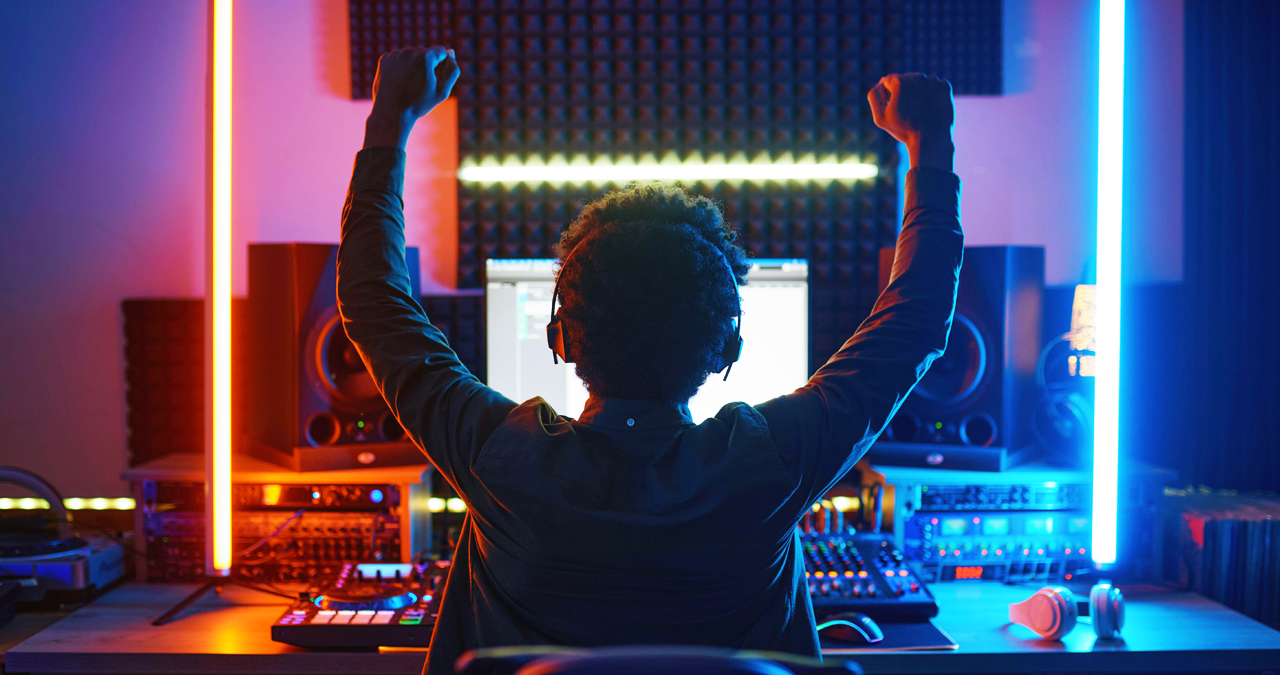
Note: This opinion-based, long-read format allows a range of writers a platform to speak about the topics that are important to them. Their views are their own and do not necessarily reflect the views of MusicRadar as a whole.
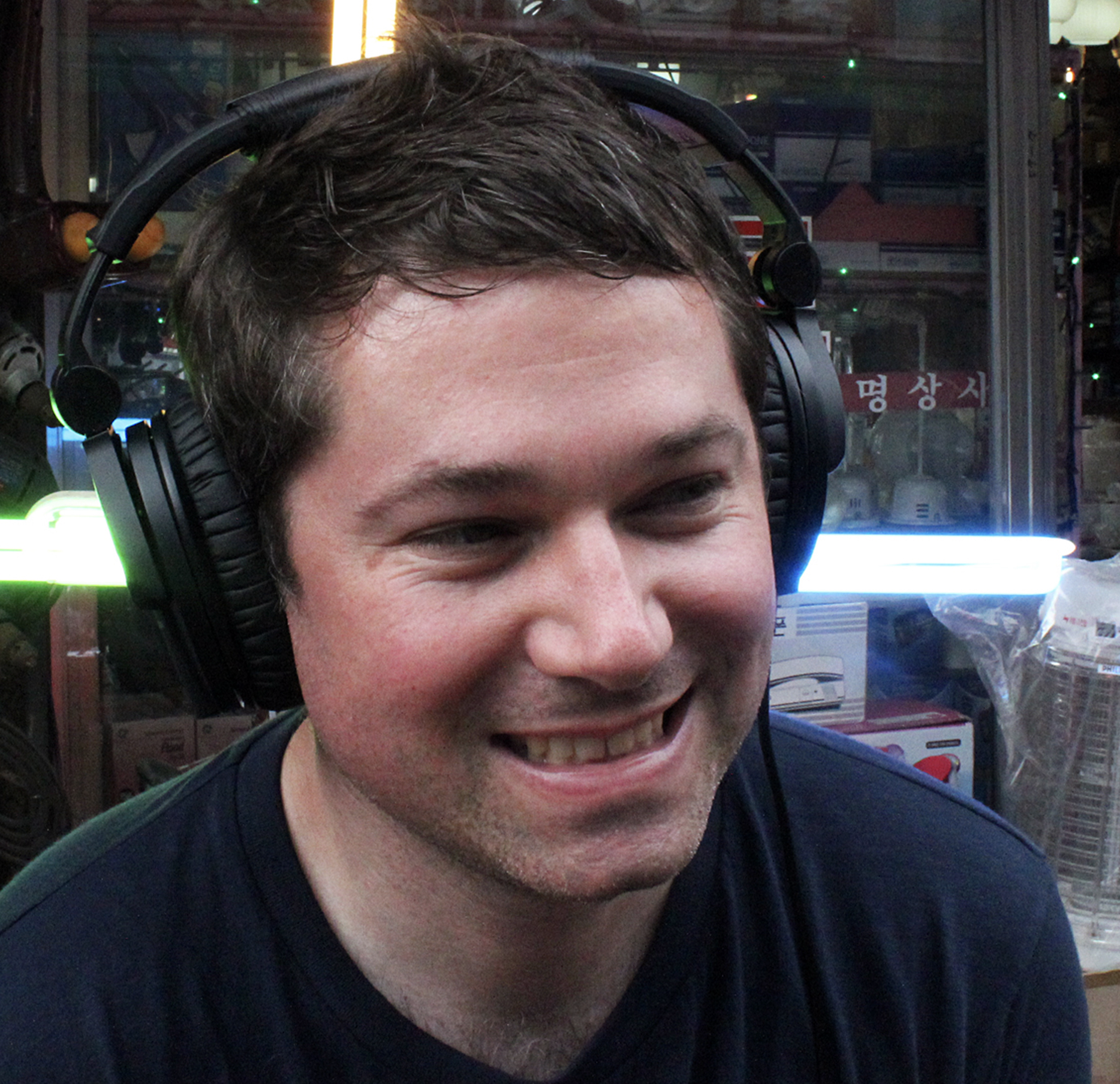
Adam Douglas is a writer and musician based out of Japan. He has been writing about music production off and on for more than 20 years. In his free time (of which he has little) he can usually be found shopping for deals on vintage synths.
The internet is awash with advice on how to finish songs. Successfully converting an eight-bar loop into a viable song is a task fraught with pitfalls, from proper arrangement to elegant mix down. Finishing a song is, after all, the goal of all musicians, right?
It’s validation that we crave from our peers and the record-buying public. Well, not necessarily. Although the broader conversation trends towards completing and releasing music, this is not the end all be all of musicianship.
Noodling on a guitar, losing hours patching a Eurorack rig, programming presets on Serum 2, jamming for a streaming audience of three - all of these are 100% viable alternatives to finishing songs, and there are plenty more where these came from.
By getting away from the mindset that we have to finish songs, and focusing on the making part of music-making, we can bring joy and awe back to the process.
It’s really only in the last 100 years that recorded music has existed at all. Before this, it was purely a live experience. Listening to a performance (or participating in the performance yourself) was the sole way to hear music.
For the thousands of years that there have been humans, we have been rocking out together around campfires, in taverns and in grand concert halls. This is more than just good fun though. In fact, recent academic studies have shown that humans may have evolved specifically to enjoy making and listening to music, activities that foster cooperation and encourage communication. That right there should be enough to a reason to think about music-making as something beyond just a completist exercise: it’s part of who we are.
Making music in any form is also good for us, as we explored in a previous article with measurable increases in dopamine associated with engaging with music. Just having fun with music is enough to get our juices literally flowing.
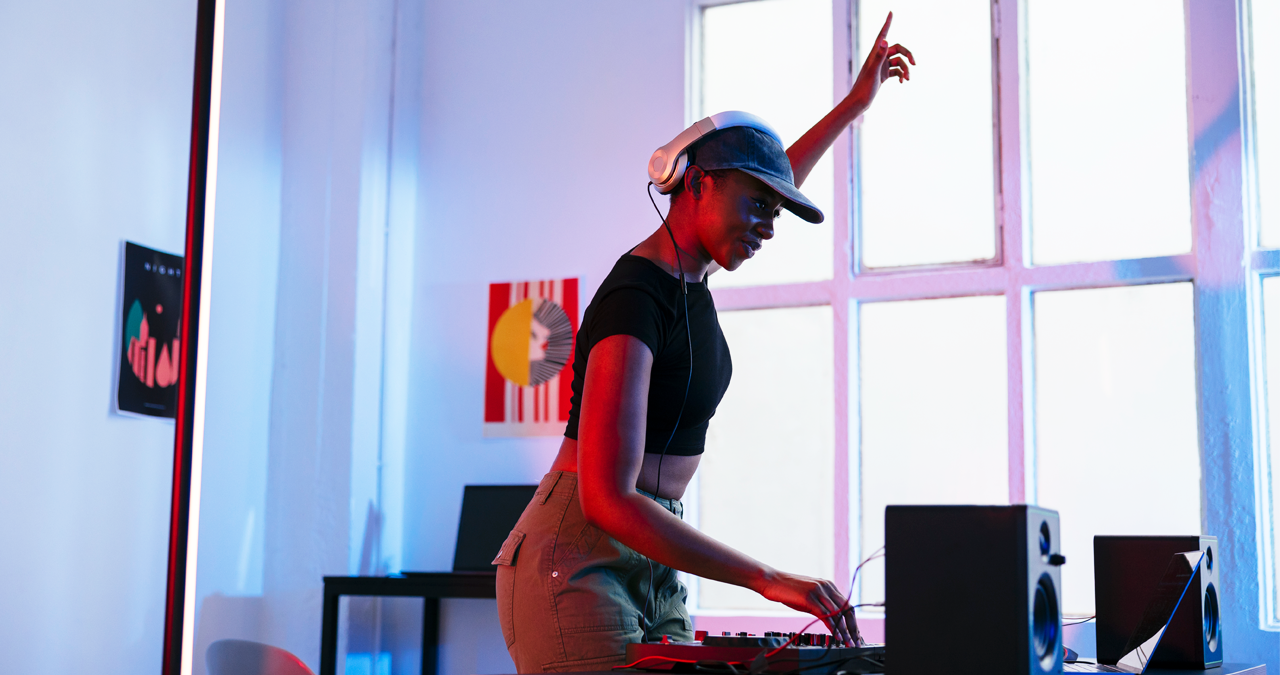
Why do we have such a need to finish songs then? In a word: capitalism.
Our modern economic system encourages the commodification of all forms of art, music included. Whether we’re trying to break even on the music equipment that we purchased as a hobby, or make a go of it as a career, the push to sell what we create is very strong.
Along with economic necessity there’s also peer pressure; internet trolls forcing the narrative that we have to prove our worth as owners of expensive gear by releasing music made with it. And with the recent rise in generative AI music, which makes it easier than ever to finish a song, our priorities have become even more skewed towards commodity rather than enjoyment.
Perhaps the easiest way to break out of this mindset is by engaging in a little jamming. “What makes you a musician is spending time making music in any form,” said artist Pheek in an Instagram post, suggesting that we should “spend an entire day playing notes or loops without direction or goal.” Musicians who play an instrument in the traditional sense will likely already be doing this. Noodling on a guitar or piano can be immensely satisfying. Make beats instead? If you’ve got fingers, you can finger drum.
Want all the hottest music and gear news, reviews, deals, features and more, direct to your inbox? Sign up here.
Those of us without instrument chops can still benefit. Electronic musicians can engage via DAWless jamming. If you think of the computer as a place to make songs (and only songs), getting away from it with hardware sequencers and synthesizers can help you approach music in a different way.
“I'm mostly DAWless because I am a software engineer and I'm already on the computer eight hours a day,” said a user on a Reddit thread about DAWless jamming. “Adding more and causing headaches just isn't fun to me so I don't use a computer.” And don’t forget to record your experiments, “in case some magic happens,” as Pheek suggested.
Going one further is live performance. As generative AI improves, it’s going to be harder and harder to tell human from machine in recordings.
As a response, the cultural importance of live music – a verifiable human-to-human interaction – will likely increase. There are already performers for whom the live experience is everything, with any released music being a snapshot of a performance rather than the reason to go on the road.
For techno artist Saytek, there is no official version of song, just raw material to reach for in a live context. “I make all my music as patterns and loops to perform live, then chop the tracks out of my live performances for release straight out of the stereo out,” he said in an Instagram post.
Live performance doesn’t have to be in a venue, either – streaming is an increasingly popular platform these days.
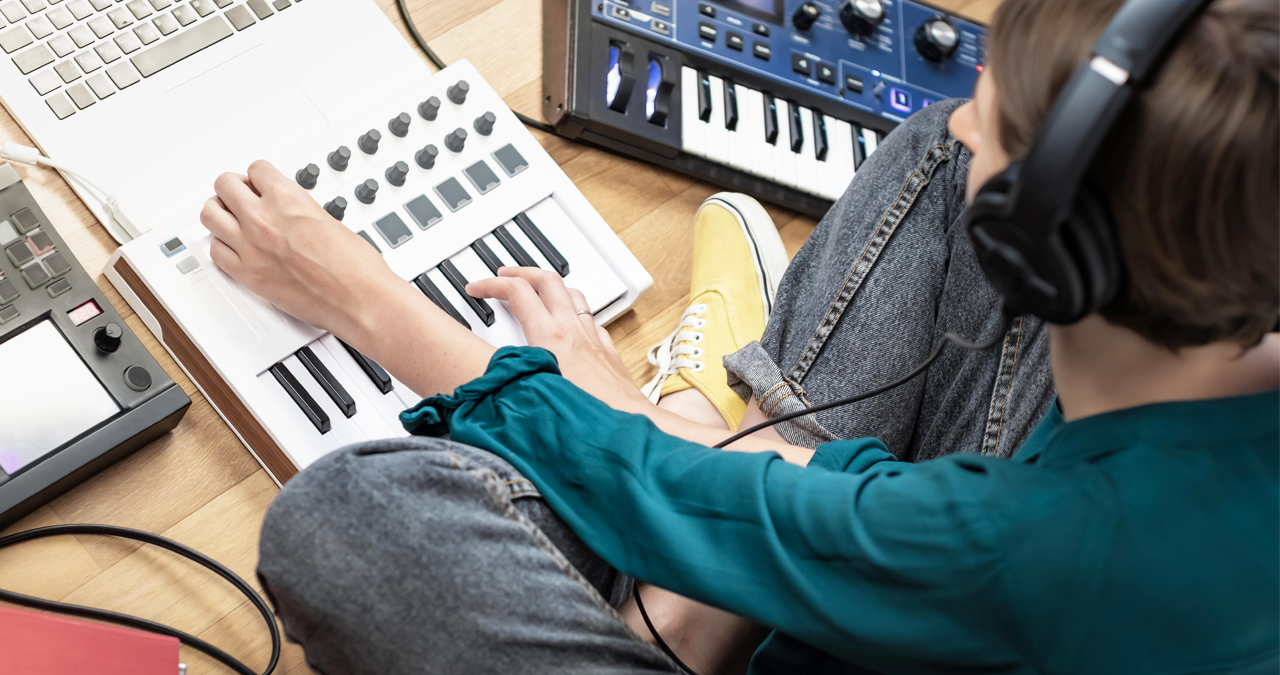
Thinking about the studio, there are lots of different ways to engage with music that don’t involve finishing songs. Learning, for example.
As modern musicians and producers, we have to wear many different hats.
Composition, arrangement, programming, mixing, mastering… Until just a few years ago, these were all individual and highly specialized jobs each requiring years of focused study. While modern software can do a lot of the heavy lifting for us, we still have to spend time learning our craft. Instead of pushing to finish yet another banger, why not devote a day or two a week to improving your skills in an area that you may feel needs work?
Another way to bolster your skills is through collaboration. Bedroom musicians tend to be solitary creatures, slaving away by themselves in front of their computers. By bringing in another person, especially if they’re from a different genre, you can enjoy music in a new way. Bonus points if they can play an instrument that you can’t.
Jon Hopkins, who makes emotional and often intense electronic music on his own, has recounted how Brian Eno brought him in to work with Coldplay on their Viva La Vida album in 2007:
“He asked me to go into the studio and add some sounds and jam with the band a bit, to bring more electronic experimentation into their sound.” Very different genres, very different instruments. And yet it ended up being beneficial to both artists. “At the time I was in the middle of writing Insides [Hopkins’ third album], and after playing an early version of Light Through the Veins to the band, it ended up forming the intro and outro to that record, which changed a lot of stuff for me and gave me the freedom to really focus on Immunity,” he said.
If you don’t have a studio that can accommodate multiple people with instruments, modern remote collaboration can offer a viable alternative, as this article explains.
And remember: you don’t have to get together with the express goal of making a releasable song. Just hanging out and jamming can often get you thinking about music production in new and unusual ways.
Of course, at some point you may want to set the jamming and collaborations aside, sit down in the studio, and make some music.
That doesn’t mean you have to do it with the single-minded purpose of finishing a releasable track. Try developing some ideas just to see what happens. “Instead of working on a song,” advised Pheek, “work on an idea. You can take one sound and try to turn it into an idea by playing it over 30 seconds to two minutes. Having many ideas is useful for eventually combining your favorite ones into songs.”
Sound design is another area that doesn’t have to involve complete songs. Devote some studio days to making patches for your favorite synths, or come up with new effects chains. Some musicians, like Richard Devine and Drew Schleshinger, make livings as professional sound designers.
Of course, they also release albums, but a significant portion of their output is delivered inside other companies’ instruments rather than to music subscription platforms.
We’ve looked at a number of alternatives to finishing songs but should you be working on a song with the goal of releasing it, don’t always feel like you have to see it through to the bitter end. If you’re not feeling a song, in other words, it’s OK to give up on it.
“Usually I sit down and I go until I’m trying to think,” Neil Young said in the book, Songwriters on Songwriting. “As soon as I start thinking, I quit, then when I have an idea out of nowhere, I start up again. When that idea stops, I stop. I don’t force it. If it’s not there, it’s not there, and there’s nothing you can do about it.” Rather than trying to force a track into something good, let it go.
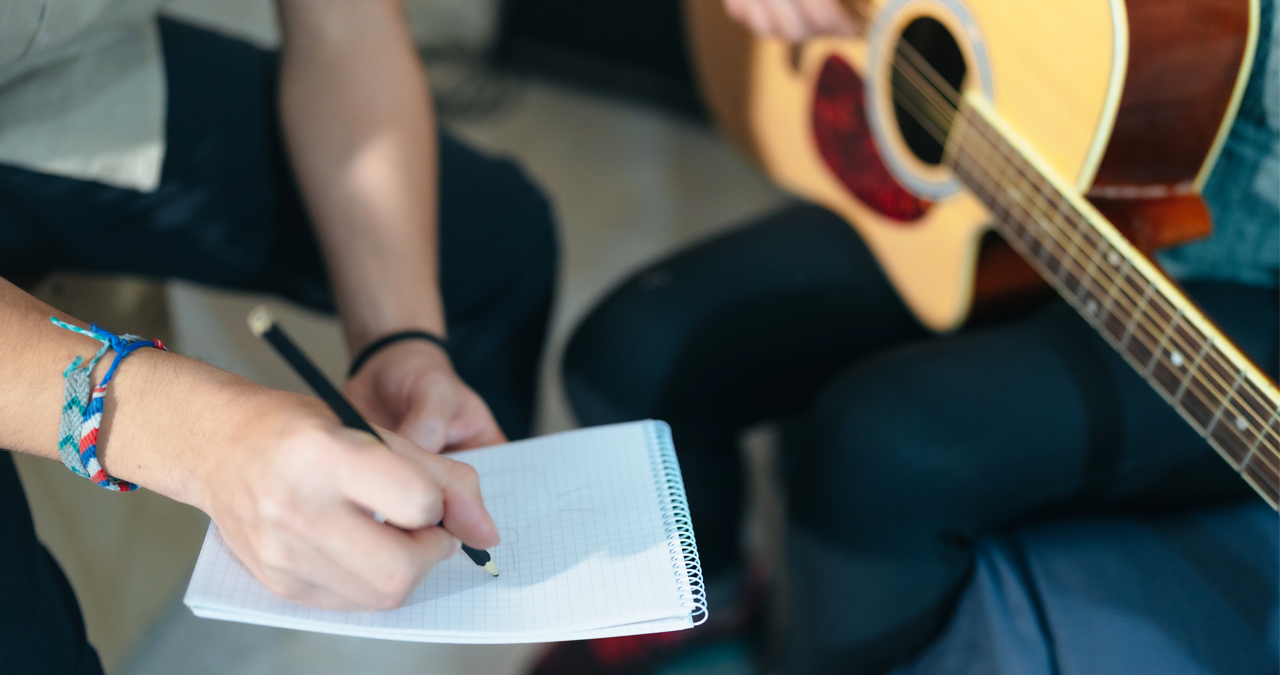
But don’t delete the project!
Every unfinished song is a potential goldmine for future ideas. You liked that beat or bassline or transition at one point, the project just didn’t make it to the finish line.
Instead of binning a good idea, bounce it out and drop it into a new project. “You need to go through all your small projects, find the most notable sounds/instruments, and save them in a folder,” a user said in a Reddit thread.“All those short projects were really just sound design sessions.”
Lastly, it may be sad to think about, but what will you do with that song even if you finish it anyway?
The music industry is not the same beast that it was 20 or even 10 years ago. With Spotify no longer paying out royalties on songs with less than 1000 streams - and something like only 15% of them actually qualifying for royalties as of 2023 – the likelihood of financial reward for your work is sadly low. Better then to do it for the enjoyment of the process rather than for a vanishingly small financial return.
Ultimately, what is satisfying to you as a musician? If completing songs is what drives you as a musician or producer (lack of financial reward be damned), then by all means, carry on. Soldier through the existential pain of writer’s block, paralysis of choice, and lack of free time, and release that single or EP or album to the world in your medium of choice.
But if you’re finding the process of making music more of a grind then a delight, maybe take a moment to think about what you like about it, and why you started doing it in the first place.
There are many ways to make music beyond just to feed the capitalist machine. You’re a music maker, after all, not a commodity maker.
Adam Douglas is a writer and musician based out of Japan. He has been writing about music production off and on for more than 20 years. In his free time (of which he has little) he can usually be found shopping for deals on vintage synths.
You must confirm your public display name before commenting
Please logout and then login again, you will then be prompted to enter your display name.